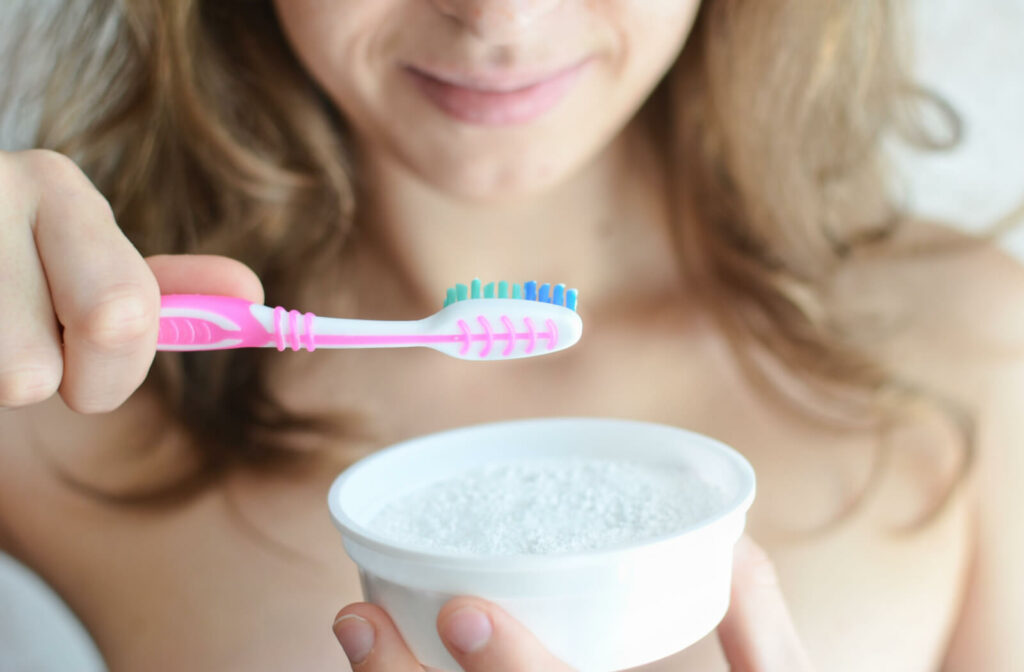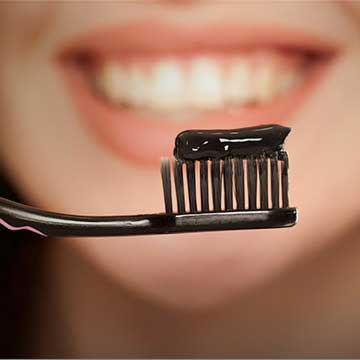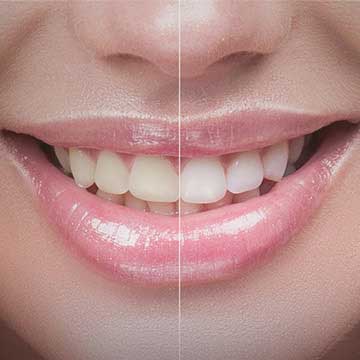Many people constantly search for effective and affordable solutions for achieving a bright, white smile. One common question is whether baking soda can whiten teeth. In this blog post, we will delve into the topic and explore the potential benefits and drawbacks of using baking soda as a natural teeth-whitening remedy.
While you can explore professional whitening, some people find success with adding baking soda to their oral hygiene regimen. However, you should get advice from your dentist to determine if this is the right choice for you.
What Is Tooth Discolouration Caused By?
Tooth discolouration can be caused by many factors, including:
- Poor oral hygiene
- Smoking and tobacco use
- Certain foods and drinks (coffee, tea, red wine)
- Certain medications that cause changes in the enamel of the teeth
- The aging process
Understanding Baking Soda
Baking soda, also known as sodium bicarbonate, has been widely used in various household applications, including baking and cleaning. Its mild abrasive properties make it an appealing option for oral hygiene, including teeth whitening. Baking soda is believed to help remove surface stains on teeth, resulting in a brighter smile.
The fine particles of baking soda gently buff away surface stains caused by smoking and coffee or tea consumption. However, baking soda doesn’t change the natural colour of your teeth or remove intrinsic stains beneath the tooth enamel.
The Benefits of Baking Soda for Teeth Whitening
Baking soda is easy and inexpensive to incorporate into your oral hygiene routine. And since it’s not a bleaching agent, there is less risk of damaging the enamel on your teeth.
Baking soda is considered safe for everyday use as long as you don’t overdo it. It’s also thought to have antibacterial properties, which can help reduce bacteria and plaque buildup in the mouth.
The most common way to whiten teeth with baking soda involves mixing it with water or hydrogen peroxide to create a paste as an alternative to toothpaste. Alternatively, you can rinse a baking soda by dissolving one teaspoon of baking soda in a cup of water.
Brush gently with the paste for at least 2 minutes, then rinse your mouth thoroughly. You can also use the rinse as a gargle or swish it around your mouth for 1 to 2 minutes before spitting it out.
You shouldn’t do this more than once or twice per week to avoid damaging your teeth and gums. If you experience any discomfort, stop using baking soda immediately.
Finally, baking soda can also be used as a spot treatment for tough stains. To do this, dip your toothbrush in the paste or sprinkle some of it directly onto the stains and brush them gently for one minute before rinsing your mouth.
Using Baking Soda Safely
While baking soda may offer potential benefits for teeth whitening, it’s crucial to use it safely to avoid adverse effects. Here are some important guidelines to keep in mind:
Limit Frequency
Using too frequently or excessively baking soda can lead to enamel erosion, tooth sensitivity, and gum irritation. It is recommended to limit its use to once or twice a week.
Dilute with Water
Mix a small amount of baking soda with water to reduce its abrasive impact to form a paste to help minimize the risk of damage to the tooth enamel.
Soft Bristle Brush
Use a soft-bristled toothbrush when applying the baking soda paste to your teeth. This ensures a gentle application without causing unnecessary harm to your enamel.
Rinse Thoroughly
After brushing with the baking soda paste, rinse your mouth thoroughly to remove any residue. Leaving baking soda on your teeth for an extended period can lead to enamel erosion.
Some Things to Consider
While baking soda may benefit teeth whitening, it is important to consider certain limitations.
Intrinsic Stains
Baking soda is primarily effective on surface stains. If you have deeper intrinsic stains or discolouration caused by genetics or medication, baking soda alone is unlikely to yield significant results.
Enamel Erosion
If used too often or for an extended period, baking soda can cause enamel erosion. Using the product sparingly is important, and always follow up with a fluoride rinse before bed. Additionally, brush your teeth regularly and visit your dentist every six months for a check-up and professional cleaning.
Professional Assistance
For a more comprehensive and long-lasting teeth whitening solution, it is advisable to consult with a dental professional. They can offer tailored advice and recommend suitable treatments based on your needs and goals.

Find Professional Advice at Otara Dental
Baking soda can be a useful addition to your oral care routine when used correctly and in moderation. Its mild abrasive properties make it a gentle option for removing surface stains and enhancing the appearance of your smile. However, it is essential to remember that baking soda does not alter the natural colour of your teeth or address deeper, intrinsic stains.
Combine baking soda with regular brushing, flossing, and professional dental visits to achieve the best results and maintain oral health. Your dentist can guide you on the most appropriate teeth whitening options for effectiveness and safety.
Remember, a healthy and radiant smile goes beyond just whiteness. It is a reflection of good oral hygiene practices and regular dental care. Embrace a holistic approach to oral health. Contact us at Otara Dental today and enjoy the confidence of a bright and beautiful smile!









